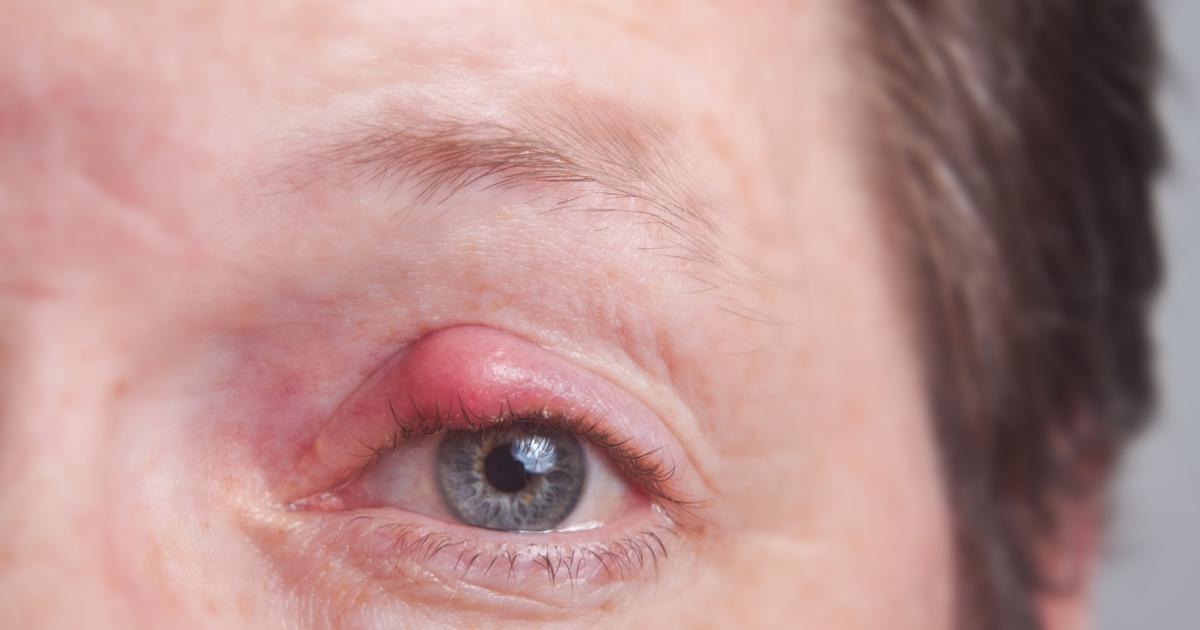Dr. Russell Philip Edwards M.D.
Ophthalmologist
3969 4th Ave Suite 301 San Diego CA, 92103About
Dr. Russell Edwards is an ophthalmologist practicing in San Diego, CA. Dr. Edwards specializes in eye and vision care. As an ophthalmologist, Dr. Edwards can practice medicine as well as surgery. Opthalmologists can perform surgeries because they have their medical degrees along with at least eight years of additional training. Dr. Edwards can diagnose and treat diseases, perform eye operations and prescribe eye glasses and contacts. Ophthalmologists can also specialize even further in a specific area of eye care.
Provider Details
Dr. Russell Philip Edwards M.D.'s Expert Contributions
Can you drive if you have cataracts?
It depends on your vision. In most states in the USA, you must see at least 20/40 in your better eye in order to pass the DMV vision test. If you have a cataract and do not feel safe driving because of your vision, you should not drive. You should contact your ophthalmologist and ask if your vision is good enough for driving. READ MORE
Are floaters a symptom of cataracts?
No. But they can be a sign of inflammation or bleeding inside the eye. A tear in the retina can lead to floaters. If they are new, a dilated examination by an ophthalmologist should be undertaken. If there is a loss of peripheral or central vision such an examination should be undertaken soon. READ MORE
Is an eye exam the same for glasses and contacts?
No. you need extra measurements for a contact lens fitting. Usually you will need to have a trial contact lens fitting in the office as well. An eye exam is usually intended to examine your eyes for health (glaucoma, cataracts, and other eye and sometimes systemic disorders.) READ MORE
Can I watch TV after Lasik?
Yes READ MORE
Has my vision increased or decreased?
Technically, you are less nearsighted. This wouyld be considered an improvement, but you will still need glasses for many visual tasks requiring good distance vision, such as driving. READ MORE
Can astigmatism be cured?
Astigmatism is a kind of focusing problem. It is treated with glasses, contact lenses, or refractive surgery. People with progressive astigmatism sometimes have a disorder called keratoconus which frequently requires treatment beyong glasse or, contacts. LASIK is not used to treat keratoconus. You shoulod consult with an ophthalmologist if glasses are not meeting your needs. An ophthalmologist is a medical or osteopathic doctor who specializes in eye and vision care. Ophthalmologists complete 12 to 13 years of training and education, and are licensed to practice medicine and surgery. see https://www.aao.org/eye-health/tips-prevention/what-is-ophthalmologist READ MORE
What is the long-term damage to your eyes from sun exposure?
The primary risk is the possible development of a pterygium. Pterygia are more common in surfers, skiers, sailors, farmers, and are more common in southern climates. Other risks include eyelid skin cancers, and rarely cancer on the surface of the eye. UV blocking sunglasses may reduce risk. READ MORE
Are cataracts curable?
Cataracts are treated by surgically removing the cloudy lens (the cataract) from the eye and replacing it with a plastic lens. Most patients do very well with this and end up with excellent vision. READ MORE
How long is the recovery for lasik surgery?
Generally, visual recovery is fast. You can expect near normal vision the day after surgery. You will need to use some medicated eye drops for a while after the surgery and will have some activity restrictions for several weeks, v=but for the most part, you will be abo=le to resume most of your daily activities and return to work a day or two after treatment. (This depends on what your "usual" activities are. Your question should have been answered by the surgeon or his staff when you underwent your pre-operative evaluation. READ MORE
Why is there blood in my eye?
Subconjunctival hemorrhage is when one or more blood spots appear on the white of your eye. The eye’s conjunctiva contains a lot of tiny blood vessels that can break. If they break, blood leaks between the conjunctiva and sclera. This bleeding is the bright red spot that you see on the white of your eye. If you have no other bruising, blood in your urine or stool, it is probably of no consequence. Still, it's probably a good idea to have it evaluated by an ophthalmologist to be sure it's not something more severe. See https://www.aao.org/eye-health/diseases/what-is-subconjunctival-hemorrhage An ophthalmologist is a medical or osteopathic doctor who specializes in eye and vision care. Ophthalmologists complete 12 to 13 years of training and education, and are licensed to practice medicine and surgery. This advanced training allows ophthalmologists to diagnose and treat a wider range of conditions than optometrists and opticians. Typical training includes a four-year college degree followed by at least eight years of additional medical training. An ophthalmologist diagnoses and treats all eye diseases, performs eye surgery and prescribes and fits eyeglasses and contact lenses to correct vision problems. Many ophthalmologists are also involved in scientific research on the causes and cures for eye diseases and vision disorders. Because they are medical doctors, ophthalmologists can sometimes recognize other health problems that aren't directly related to the eye, and refer those patients to the right medical doctors for treatment. see https://www.aao.org/eye-health/tips-prevention/what-is-ophthalmologist READ MORE
What does an ophthalmic pathology evaluation entail?
It is an examination to look for diseases or other disorders of the visual system. The exam will include evaluating the visual acuity (i.e. what is the smallest letter you can see from a measured distance), checking the peripheral vision, the reaction of the pupils and looking at the eyes carefully with a special microscope. Sometimes special tests are done including optical coherence tomography, photographs of the ocular contents, visual field testing. An ophthalmologist diagnoses and treats all eye diseases, performs eye surgery and prescribes and fits eyeglasses and contact lenses to correct vision problems. Many ophthalmologists are also involved in scientific research on the causes and cures for eye diseases and vision disorders. Because they are medical doctors, ophthalmologists can sometimes recognize other health problems that aren't directly related to the eye, and refer those patients to the right medical doctors for treatment. see https://www.aao.org/eye-health/tips-prevention/what-is-ophthalmologist. READ MORE
What is a vitrectomy?
A vitrectomy is a surgical proceedure in which the vitreous (and the hemorrhage in it is removed. This procedure should impvoe the vision as the hemorrhage will be gone. The vitreous is replaced by a saline-type fluid at the time of surgery and the eye will continue to make fluid to maintain the proper volume and pressure inside the eye. Your surgeon can explain to youthe expected benefits from the surgery as well as go over risks and the consequences of not undergoing surgery. READ MORE
Is it normal for kids to see floaters?
They can, but it's a good idea to have him examined to be sure that there are no serious problems. READ MORE
What are the risks with iris-implant procedures?
Loss of vision, pain, glaucoma, infection, cataract, chronic ocular inflammation are all possibilities. See https://www.aao.org/eye-health/tips-prevention/iris-implants-risk-eye-damage READ MORE
Can kids have astigmatism?
Absolutely they can. READ MORE
Are eye floaters normal in excessive sunlight?
They frequently are more noticable in bright light. READ MORE
Can LASIK be used to change iris color?
No READ MORE
Can macular degeneration cause blindness?
When macular degeneration is severe, people can lose the ability to see things straight ahead; they may no longer be able to recognize faces, read, etc, but they do not lose their peripheral vision from AMD. Nutritional supplements (using the AREDS2 formulation, easily found in the eye care section of a pharmacy or most supermarkets) can slow the progression of dry macular degeneration. If there is a sudden change in the vision, it may have have developed into the wet form; that should trigger an urgent return to her ophthalmologist. READ MORE
Are eyeglasses better than contact lenses?
If there is little or no astigmatism, then contacts ususally let you see just as well as with glasses. There is a risk of developing complications from contact lens wear, but the risk is small if you care for the lenses properly. READ MORE
Dr. Russell Philip Edwards M.D.'s Practice location
Practice At 3969 4th Ave Suite 301
3969 4th Ave Suite 301 -San Diego, CA 92103Get Direction
Dr. Russell Philip Edwards M.D.'s reviews
Write ReviewPatient Experience with Dr. Edwards
Recommended Articles
- Don’t Let Your Computer Strain Your Eyes
What is eyestrain?Eyestrain is a common medical condition characterized by an overuse of the eyes, like when driving a long distance, reading for a couple of hours, or using the computer. Staring at the computer screen for a long period of time will increase discomfort in your eyes.Eyestrain is not...
- What are the Signs and Symptoms of Rosacea?
Rosacea is a very common skin condition that frequently affects people aged above 30 years. It produces redness on your cheeks, nose, and forehead. Although it commonly affects women, more severe symptoms occur in males. Approximately 16 million people are affected in the United States alone, and it...
- Eye Twitching: Symptoms and Solutions
Eye twitching is the repetitive, involuntary blinking or spasm of the upper eyelid. Also known as blepharospasm, twitching affects the muscles of both eyes. Some of the most common causes of eye twitching include fatigue, stress, and caffeine. Twitching is usually painless and goes away on its own...
- Diagnosing Cataracts: What You Need To Know
What are cataracts?When the lens located inside the human eye gets cloudy, it is called a cataract. A cataract in Latin means waterfall, thus describing what your vision with cataract is like; seeing through a waterfall. A cataract occurs as a result of the inability of the lens to allow sufficient...
- What is Eye Melanoma?
What is eye melanoma?Eye melanoma is also known as ocular melanoma. It is a type of cancer that develops in the eye, from the melanin-producing cells.Melanoma is a type of malignant cancer that develops in the melanin-producing cells all over the human body. Melanin-producing cells are known for the...
- What is Eye Herpes?
What is eye herpes?Eye herpes, or ocular herpes, is a recurrent viral infection that affects the eyes. It is caused by herpes simplex virus type 1. It causes an inflammation of the eye, as well as scarring in the cornea.Eye herpes can be transmitted from one person to another when there is a close...
Nearby Providers
- Antonio MendezLeona Vicario 1510 Tijuana Baja California 22320
- Dr. Lee Katzman M.D.7877 PARKWAY DR LA MESA CA 91942
- Dr. Kimberly P. Cockerham MD3590 Camino Del Rio North San Diego CA 92108
- Dr. David Castillejos M.D.342 F ST CHULA VISTA CA 91910
- Patrick D. Keating M.D.4734 PANORAMA DR SAN DIEGO CA 92116
- Bryan Propes34800 Bob Wilson Drive San Diego California 92134
Nearest Hospitals
SCRIPPS MERCY HOSPITALl
4077 5TH AVE SAN DIEGO CA 92103UNIVERSITY OF CALIFORNIA SAN DIEGO MEDICAL CENTERl
200 WEST ARBOR DRIVE SAN DIEGO CA 92103







